BANK OF ALBANIA
PRESS RELEASE
Ninth meeting of the National Payment Systems Committee
Publication date: 13.12.2023
On 13 December 2023, the National Payment Systems Committee (NPSC) held its ninth meeting in the premises of the Bank of Albania. The meeting was chaired by Ms Luljeta Minxhozi, First Deputy Governor of the Bank of Albania.
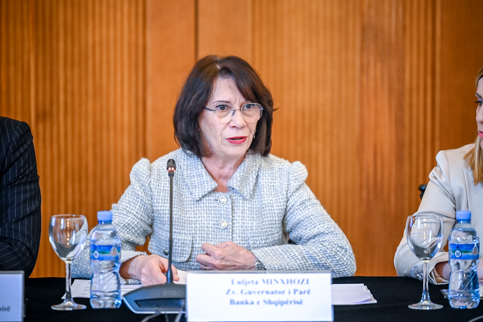
In addition to the NPSC members, the meeting was attended by the Deputy Minister of Economy and Finance, Mr Endrit Yzeiraj, as well as representatives of the World Bank, the Bank of Italy and other international institutions.
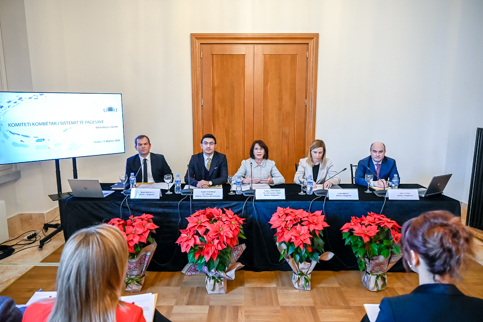
Representatives of commercial banks, non-bank financial institutions, and national operators of card payment schemes and experts of the Bank of Albania were also invited to this meeting.
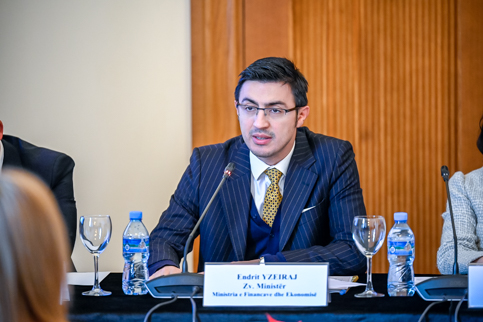
The proceedings of this meeting were opened by the Deputy Governor Minxhozi and the Deputy Minister of Finance and Economy Yzeiraj. In their remarks, both authorities highlighted the pivotal role of the National Payments Committee in implementing strategic reforms aimed at fostering Albania's integration into the European Union (EU).

In her speech, Ms Minxhozi addressed the significant progress made in fulfilling the objectives outlined in the Action Plan set forth in the National Retail Payment Strategy. Chair Minxhozi emphasised that, rom a regulatory point of view, the alignment of our framework with that of the European Central Bank (ECB) for PSD2 payment services has been achieved. Furthermore, we are currently in the final stage regarding the approval for the Law on payment accounts with basic features. This draft law is aimed also for further alignment with the relevant EU directive. The Bank of Albania has been proactive in implementing various initiatives to enhance the security and efficiency of the domestic payment market, and have been focused on integrating this market with the European one and fulfilling Albania's commitments to Western Balkan projects.
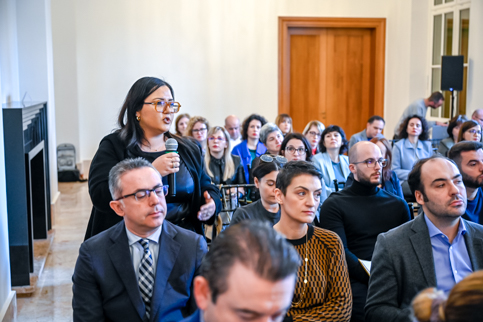
Deputy Governor Minxhozi stated that the Bank of Albania has been working towards Albania's membership in the Single Euro Payments area also known as SEPA, since 2021, when we joint the regional project ‘‘On the Modernization of Payment Systems in the Western Balkans.
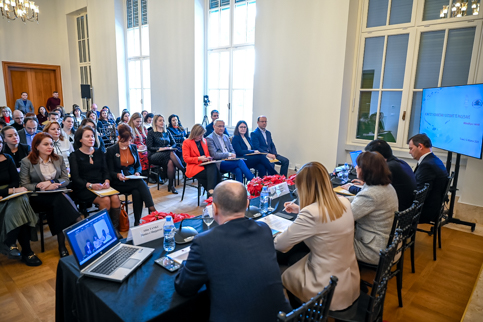
Albania’s participation in SEPA represents a significant milestone in the country's journey towards the European integration. It will provide valuable benefits for Albanian enterprises and consumers in terms of costs, time and simplicity with which they will carry out cross-border transactions within the European market. Moreover this project is expected to have a substantial impact on key sectors such as tourism and exports to the EU, and contribute to the formalization of remittance flows.
Next, Ms Minxhozi focused on the work performed by the Bank of Albania for implementing instant payments. The latter are an alternative for electronic payments, ensuring 24/7 availability at a lower cost than cards.
In this view, the Bank of Albania is actively collaborating with the Central Banks of the European System, like Bank of Italy and the European Central Bank. The successful implementation of this system will pave the way for Albania's integration into the European TIPS system, in turn serving potentially as a solution to other Western Balkan countries.
Deputy Governor Minxhozi pointed out also on the importance of the infrastructure developments, with a specific focus on the forthcoming adoption of the ‘'On in-depth customer authentication and common, open and secure communication standards” regulation, set to take effect in January 2024. This regulation aims to establish robust standards for open banking operations, ensuring the utmost security and confidentiality of payment transactions conducted by users of payment services. On the other hand, the Bank of Albania is placing significant importance on bank's preparedness to implement these standards. The Bank of Albania is really focused on this process and keeping a close eye on it to ensure everything is successfully completed by the January 2024 deadline.
Deputy Minister of Economy and Finance, Mr Indrit Yzeiraj, commended the successful implementation of the objectives outlined in the National Retail Payment Strategy. These achievements have significantly contributed to enhancing financial inclusion and reducing reliance on cash. Furthermore, the Ministry fully supports the Banks of Albania's initiatives in implementing the necessary regulatory changes for SEPA membership, which is a crucial objective of the Albanian Government in the European integration agenda. Mr Yzeiraj also highlighted the importance of fast payments included in other government projects, such as e-commerce, digital fiscalization, and the digitalization of services in e-Albania.
Next, presentations and technical discussions focusing on SEPA membership criteria and requirements for Albania took place. The meeting also covered the progress of the fast payments project, updates to the Payment Systems operated by the Bank of Albania, and the bank's efforts to meet the security standards required by open banking. The meeting concluded with the Bank of Albania presenting its Strategy for financial education and financial inclusion. The strategy is based on internationally recognizes standards, guidelines, and principles established by the OECD and approved by the G20. It entails an action plan with clear objectives. The Bank of Albania has long emphasized financial education as a public good that empowers individuals to make informed decisions. Given the increasing complexity of financial services and technological innovations, it is imperative to intensify financial education efforts and ensure the involvement of all market players.

 Linkedin
Linkedin
 Twitter
Twitter
 Youtube
Youtube
 Facebook
Facebook
 Flickr
Flickr
 RSS
RSS
 Subscribe
Subscribe
 Feedback
Feedback